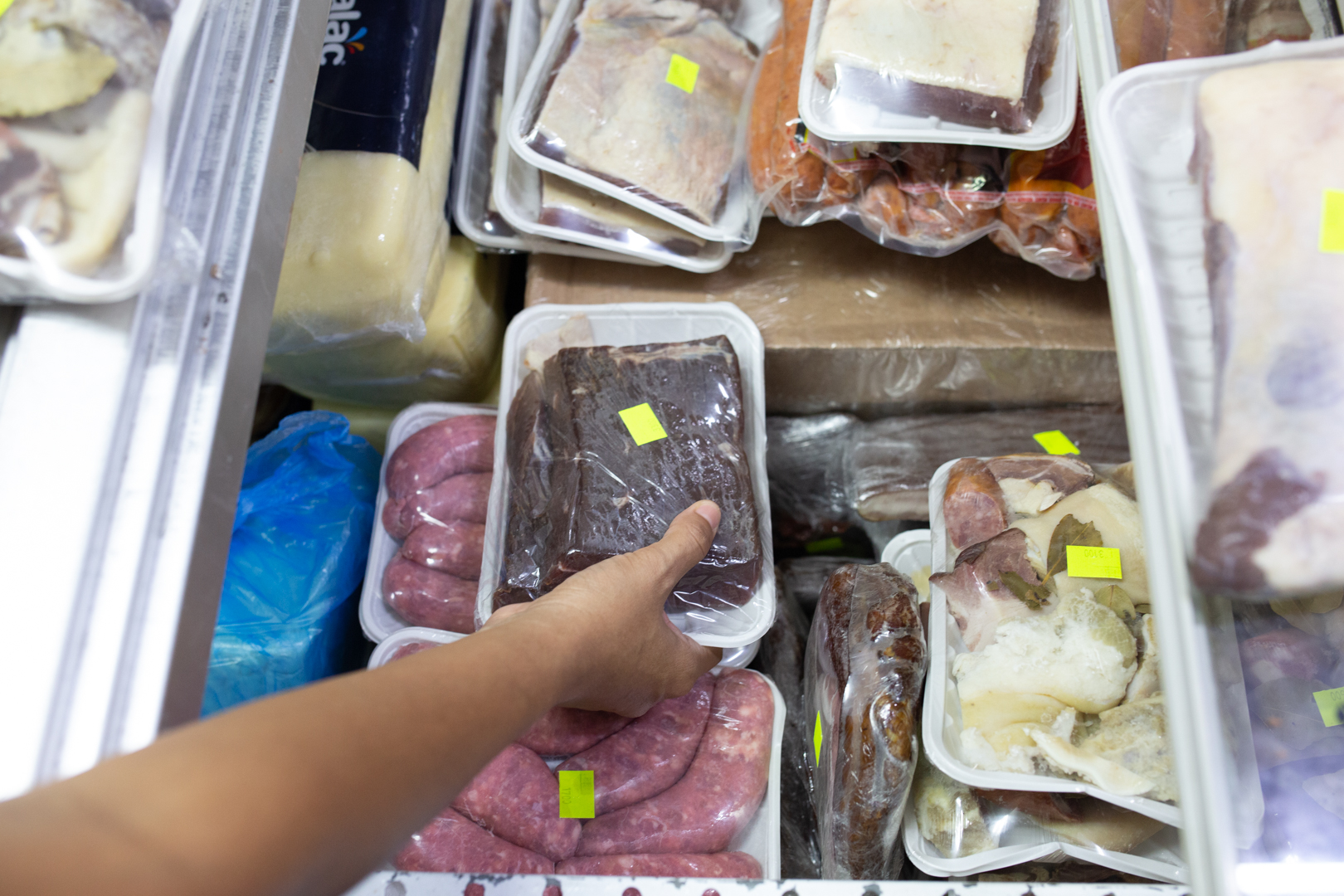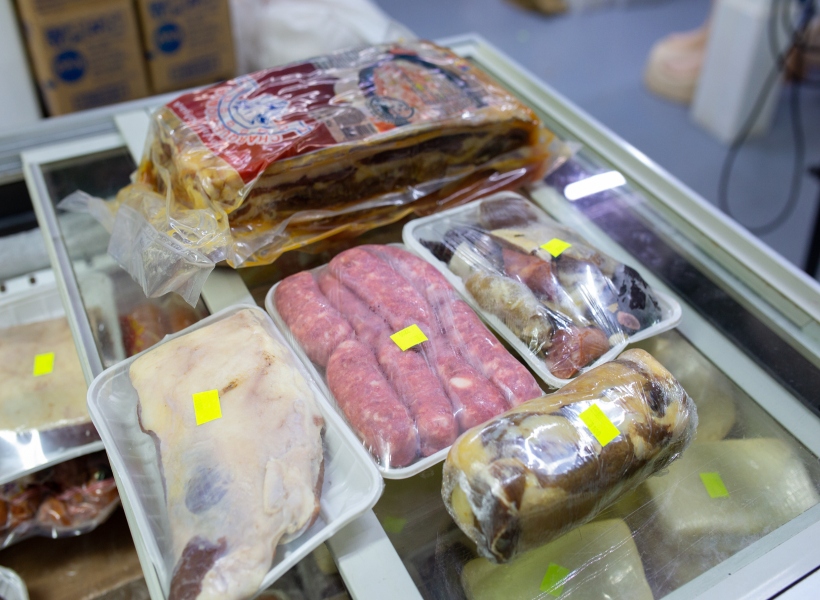The Guyana Livestock Development Authority (GLDA) in collaboration with the Ministry of Health, on Friday, seized more than 700 pounds of meat products imported from Brazil at the Casa Mato Grosso Supermarket on Robb Street.
Dr. Grayson Halley, Chief Executive Officer of the Guyana Livestock Development Authority (GLDA) told the media that Guyana does not import meat from Brazil because of the presence of foot and mouth disease in that country.
“We have here at this store on Robb Street, over 700 pounds of imported meat from Brazil of different kind. We have mostly beef products, pork products and we have some tripe and other products, mixed meat products, and so on,” Dr. Halley said.
The CEO explained that sometimes officers exercise leniency if a person is found with a quantity of meat for personal consumption, “but when you have products coming in huge quantities like this one, that’s going to consumers, that is being sold without proper documentation, we certainly have a strong objection against those.”
Dr. Halley said the GLDA is clamping down on errant supermarkets, especially when it comes to meat products. The raid and seizure are part of ongoing monitoring exercises, which have been ramped up for the Christmas season.
With regard to foot and mouth disease, Brazil has been categorized as free but with vaccination. However, Dr. Halley says he does not have confidence in that information as the country still has to vaccinate to prevent the disease.
“Guyana is considered free without vaccination and we have to protect that status. We cannot afford now, when we want to develop our livestock industry, to lay back and allow people to bring illegal products that can possibly expose our cattle population and our livestock population in general, and then it can cripple our industry before it even takes off,” he explained.
Apart from the dangers of foot and mouth disease, the meat products, imported only recently, are close to expiring.
“They import them close to expiry, then they repackage them to give the consumer while they are expired because the labels are printed on to the packages so you cannot leave it there. You have to repackage them so consumers do not know what it is they are buying,” the GLDA head explained.
Dr. Halley is urging the public to be mindful when making purchases of imported meat.
“We tend to not look for the expiry date. We tend to just pick up a pack of meat or sausage or whatever; we need to become more conscientious and read the labels, see where it’s coming from and we need to educate ourselves. GLDA would be running off a series of educational programmes on TV so that people could be aware,” Dr. Halley said.
The GLDA will also be engaging a legal team to prosecute persons found breaching its guidelines.
(Modified from Department of Public Information)











